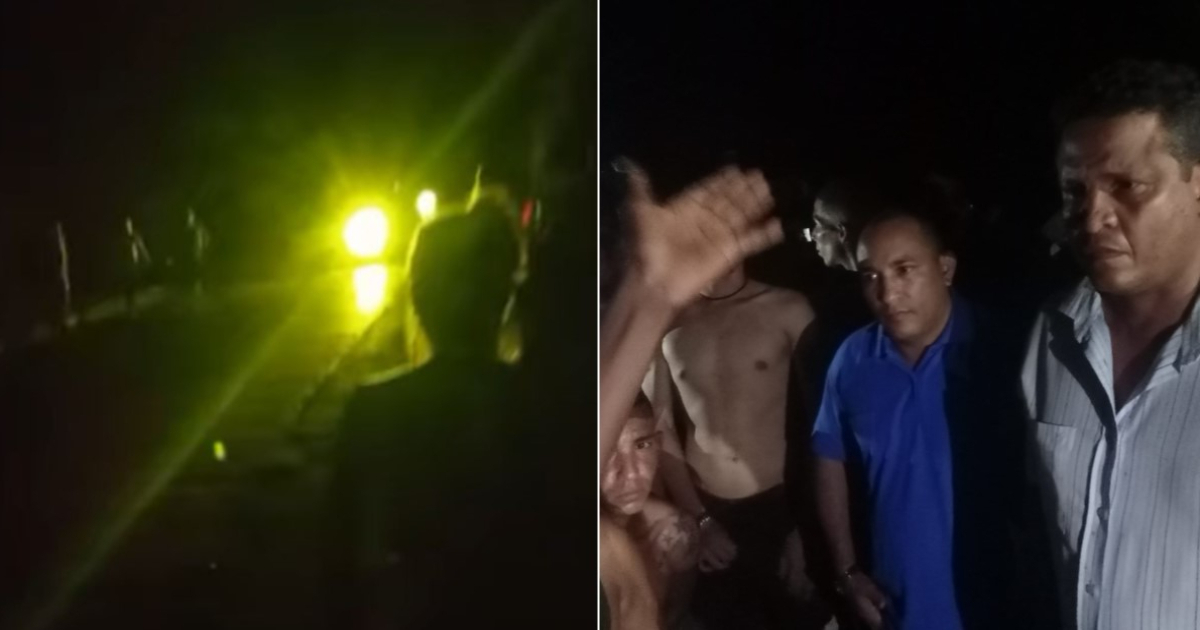
Related videos:
In May, Cuba was shaken by a wave of protests and citizen reports, with a total of 716 demonstrations recorded, according to reports from the Cuban Conflict Observatory (OCC).
This figure represents an increase of 11.6% compared to the 633 recorded in April, and a rise of 10.2% compared to those recorded in March, a month marked by massive demonstrations across various parts of the country, known as 17M.
The constant power outages, lasting up to 20 hours, were the main catalyst for these protests, which manifested in pot-banging demonstrations, graffiti, sit-ins, and a flood of demands on social media and in the press.
The Public Services category dominated the protests, tallying 169 events driven by the energy crisis. Daily deficits in electricity generation reached up to 1,500 megawatts, severely impacting the daily lives of Cubans. In contrast, protests against Repressive Acts amounted to 145, while Challenges to the Police State reached 132.
Although Havana, with its 233 protests, was the epicenter of the demonstrations, discontent spread throughout the island.
Temperatures exceeding 35 degrees Celsius and prolonged electricity outages prompted the population to take to the streets in search of answers.
In Santiago de Cuba, for example, 'protest congas' were reported in five different neighborhoods, while in Baracoa (Guantánamo), people were demanding electricity and food during street demonstrations.
The discontent over the power outages also manifested in various forms of protest in other locations.
In Las Tunas and La Lisa (Havana), people protested with pot-banging during the power outages, and in Juraguá (Cienfuegos) and Camino de La Habana (Sancti Spíritus), the population also took to the streets.
Social media has become a battlefield where citizens express their frustration and demand immediate solutions.
To contain popular unrest, the regime intensified repression. There were reports of 145 repressive acts, which included intimidating deployments by the police and the special forces known as the Black Berets of the Ministry of the Interior (MININT).
These actions aimed to dissuade the population from continuing the protests, but they did not succeed in calming the citizens' spirits.
The food crisis and public safety insecurity
The category of Food, Inflation, and Agriculture recorded 94 protests, reflecting the serious food situation in the country.
Deliveries of the basic food basket were restricted to only a few pounds of rice and legumes, while the prices of essential products such as oil, bread, and eggs continued to rise.
Entire families were forced to spend over 70% of their income on food, which led some to resort to extreme measures to survive, such as searching for leftovers in the trash or even hunting stray animals.
Although the category of Citizen Insecurity remained stable with 82 protests, the OCC recorded 16 murders and homicides during the month, including femicides and acts of violence motivated by thefts or settling scores.
Reports of missing persons and thefts were also common, intensifying the sense of insecurity among the population.
Public health, epidemiological situation, and other social conflicts
Protests in the field of Public Health continued, with patients increasingly relying on social media, public charity, and the informal market to access medical care.
The situation in hospitals is dire, with recent outbreaks of diseases such as tuberculosis and Oropouche fever worsening the health crisis.
The OCC also recorded 48 protests related to other social conflicts, including the loneliness of mothers whose children have emigrated, neglect in nursing homes, and lenient sentences for pedophiles.
The living conditions of the most vulnerable Cubans continue to deteriorate, with many resorting to precarious jobs to survive.
In light of this situation, the Catholic priest from Esmeralda, Alberto Reyes Pías, stated in a post on May 24 that Cuba needs a change of system.
According to Reyes Pías, it is not enough to simply address the immediate problems of electricity supply or food; the country needs a profound transformation that allows citizens to regain control of their lives and the freedom to build their future.
In summary, the month of May in Cuba was characterized by an intensification of social discontent, marked by a significant increase in protests and citizen complaints. The energy and food crises, along with rising insecurity and the deplorable state of public services and healthcare, have prompted Cubans to demand profound changes in their country.
Note: This summary provides an overview of the situation in Cuba during the month of May, based on reports from the Cuban Conflict Observatory (OCC). The information reflects the severity of the crises faced by the population and the regime's response to the rising citizen demands.
Filed under: